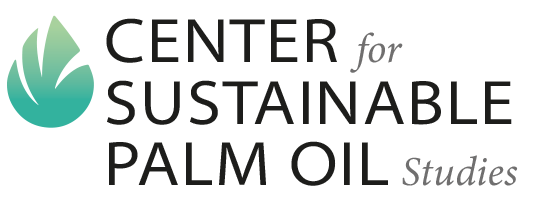
In March, the World Resources Institute (WRI), a global research NPO operating since 1982, issued their annual Global Forest Review. According to the review, 12.2 million hectares of tree cover was lost in 2020 – a global 12% increase from last year. Nearly one-third of that loss occurred within humid tropical primary forests that play a crucial role in storing carbon and maintaining biodiversity. Amid this backdrop, declining national deforestation rates from Southeast Asian nations, like Malaysia and Indonesia, provided a rare glimpse of hope for the world’s forests.
For the second year in a row, Brazil topped the list of nations that experienced primary forest loss. The country lost nearly 1.7 million hectares to fires and clear-cutting. Not only was this loss a 25% increase from 2019, but it was also three times higher than the second country on the list: the Democratic Republic of Congo. Most of the primary forest loss in Brazil occurred in Amazon. However, the Pantanal, which is the world’s largest tropical wetland, experienced 16 times more primary forest loss. Clearing for development projects as well as fire for agriculture and cattle pastures contributed considerably to this loss.
The data for the report, which was provided by scientists at the Global Land Analysis and Discovery laboratory at the University of Maryland, clearly denotes key targets were missed in 2020 as forests loss climbed at a staggering rate, reminding us of the looming dangers and possibilities of deforestation rates climbing to new highs. The time is now for us to reimagine our policies and our economies in a way that our forests stay protected. This is where Southeast Asian nations have been leading:
While Brazil’s deforestation increased dramatically, Malaysia’s forest loss reduced. The country dropped from its prior position of 6th to 9th in just a year. This was the steepest drop registered by any nation on the list but not unsurprisingly, as the decline was being registered for the fourth consecutive year in a row!
According to the report, government actions were in part to be credited for this downward trend. Malaysia’s 5-year cap on plantation undertaken in 2019 and its stringent execution of forest laws by means of increasing fines and jail terms for illegal logging had played a favorable role. Corporate commitments of the pulp, paper and palm oil sector played a substantial part in the rollback of forest loss, as well. 83% of palm oil refining capacity in Malaysia and Indonesia now come under the No Deforestation, No Peat, and No Exploitation (NDPE) Commitments.
The success South Asian nations have acquired is a testament to their government’s commitment to sustainability. The progress in Malaysia, for instance, has coincided with the implementation of measures like the Malaysia Sustainable Palm Oil (MSPO) certification scheme. Under this programme, a moratorium on palm oil expansion was enforced to protect 50% of Malaysia’s forest covers while ensuring that palm produced in the country remains 100% sustainable.
In this context, disinformation that discredits palm oil or regional policies, like that of the EU, to phase palm oil out of its markets need to be reviewed. They seem to overlook the progress and efforts developing nations like Malaysia have put in keeping their forests healthy and commodities production sustainable. They also seem to operate in a vacuum outside of the rationale provided by research.
Only a few days before WRI’s report was launched, researchers from the Chalmers University of Technology and the University of Louvain, conducted a robust analysis of more than a thousand proposals. These proposals originated from open consultations and workshops, where the EU gathered ideas from companies, interest groups and think tanks to put together the most potent and politically feasible policy framework that can effectively help address the issues of deforestation caused by imported good.
The research, titled, ‘Eighty-Six EU Policy Options for Reducing Imported Deforestation’ cautioned against blanket restrictions on commodities. Instead, recommended that importers be held accountable and responsible by requiring them to carry due diligence in their supply and chain for products. The researchers also encouraged conducting multi-stakeholder forums inclusive of companies, politicians, and civil societies for decision making pertinent to the removal of a supply chain, commodity, or area, of deforestation. The involvement of the affected parties in such a framework paves way for widespread acceptance of the policy.
Not unsurprisingly, the researchers also proposed measures to balance the trade-off between the proposed policy’s effect and its feasibility. For instance, the researchers recommend pairing trade regulations, that tend to hit the poorest countries the hardest, with provisions of aid so nations can pursue sustainable production. This, they argued, can help reduce the risk of unsustainably produced goods being exported to regions other than the EU. For instance, China, which is the second largest palm oil importer, has recently given investors the access to trade palm oil with no stipulation for sustainability. This is dangerous as, it results in creating what is known as a ‘leakage market’ which can end up forcing the hand on producing nations derailing efforts like the MSPO.
Recognizing that palm oil is part of half of humanity’s diets, yields the most while using the least amount of land and water when compared to other vegetable oils and is a source of livelihood for millions of farmers is an important realization. It forces us to think away from linear policy approaches that downplay the realities of our food cycle as well as innovation that can help balance our needs without jeopardizing our natural world. Roan du Feu, Research Associate at Arabesque Asset Management, echoed this sentiment well when he wrote about the need for the world to acknowledge the flaws in the existing system, but without failing to acknowledge the growing demand for vegetable oil for which palm oil, a source with no alternative sustainable source in sight, fulfils. He contends certified palm oil may be the answer for us in the long run.
In the end, while Southeast Asian states have brought hope in our fight against deforestation, the global trends paint a grim picture otherwise. Just the total carbon emission resulting from the forest loss this year equaled 2.64 Gt – an equivalent to the annual emission of 50 million cars which is double the number of vehicles present on the road of the US. These realities are a reminder that efforts from Malaysia and Indonesia, while commendable, will only succeed when the comity of nations comes together.
It is a stark reminder that national policies continue to have the most impacts on forests, but that without global cooperation, their impact may remain limited in the face of climate change.







